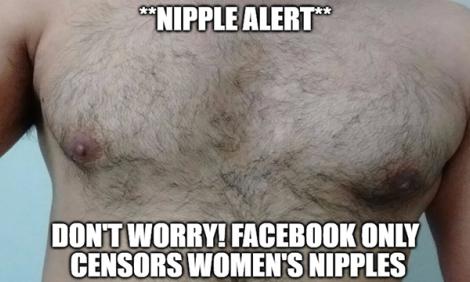
Feminist talk
Its 2016 and Facebook is still terrified of women's nipples
Facebook's arbitrary policy on women's nipples has angered many, who find their content removed or accounts suspended or banned. Japleen Pasricha writes about being repeatedly 'punished' by Facebook for posting content on the social media platform that is feminist and bold, about young women growing up and even images of protest by women in Manipur against the oppression of the Indian army and…
Feminist talk
Flash Mob Korean Style
In Seoul for the Asia Europe Foundation's Informal Meeting on Human Rights, looking at human rights and ICTs, I made a few extra-curricular stops - it was hard not to, when just outside our hotel is an ongoing protest about labour rights. The protest site has obviously been occupied for some time - they are even growing tomato plants - and is just outside a major tourist attraction. The protest…
Publication
The Global Media Monitoring Project 2010
On 10 November 2009, the news media came under scrutiny in 108 countries. Trained volunteers from women's rights organizations, media professional associations, and universities monitored the representation of women and men and gender portrayal in their local news media. The GMMP Report 2010 reveals what they found. The 2010 GMMP is the first to address women in the online news media.
In depth
Internet Governance Issues on Sexuality and Women's Rights
The Internet Governance Forum (IGF) has been a challenging space for both women's rights advocates and for broader constituencies engaged in advocacy for gender equality and sexuality related rights. In the fifth and final year of its mandate, women's rights are still being dwarfed as a critical issue to be debated in this arena, while sexuality issues, although present, are not seen as a matter…
In depth
Women and Philippine Media: At the Fringes of Freedom
Where are women located in the struggle for freedoms to express, create and disseminate information through ICTs as media? Censorship comes in multiple forms in the Philippines. The country has one of the highest counts of media practitioners who are killed in the course of their work in the region. Yet, it retains a conflicting standing as one of the open media landscape in South East Asia.…

In depth
Tools for Communication Rights in Malaysia
Jac sm Kee speaks with one of the most vocal media and communication rights advocates in Malaysia, Sonia Randhawa, through an online messenger platform about motivations, communication technologies, rights, democracy, tactics and gender. Sonia currently sits as the Executive Director of the Centre for Independent Journalism (CIJ). Apart from conducting regular trainings on independent media and…

In depth
Where is women´s “J” spot?
As the international community prepares to join the United Nation’s 49th Session of the Commission on the Status on Women (CSW), women media practitioners are asking: where is women’s “J” spot? Despite the fact that the latform for Action (PFA) contemplates Section “J” in Chapter 3, about Women and Media, the issue is hardly found in the provisional agenda for the evaluation process. The U.N.…
In depth
Latin american women take on the internet
"Information technology obviously will not solve the world's problems. But wisely deployed and developed, it has proven to be a powerful tool for advancing social causes. One of the social groups that has been most dynamic in using this technology innovatively for social progress, is the women's movement; and in many aspects, the South has exerted leadership in this process."
Publication
Where is Women´s “J” Spot?
As the international community prepares to join the United Nation’s 49th Session of the Commission on the Status on Women (CSW), women media practitioners are asking: where is women’s “J” spot? Commonly known as “Beijing +10,” the role of the official UN session is to evaluate what governments have done to implement the Platform for Action (PFA) of the Fourth World Conference on Women 10 years…
Publication
Radio, Convergence and Development in Africa: Gender as a Cross-Cutting Issue
The purpose of this paper is to argue for the consideration of gender issues in all research on radio, convergence and development in Africa. It is intended to guide the deliberations at our Butare roundtable (September 2009) discussion on a research agenda and to ensure that we put gender considerations front and centre as we design our research plans.




